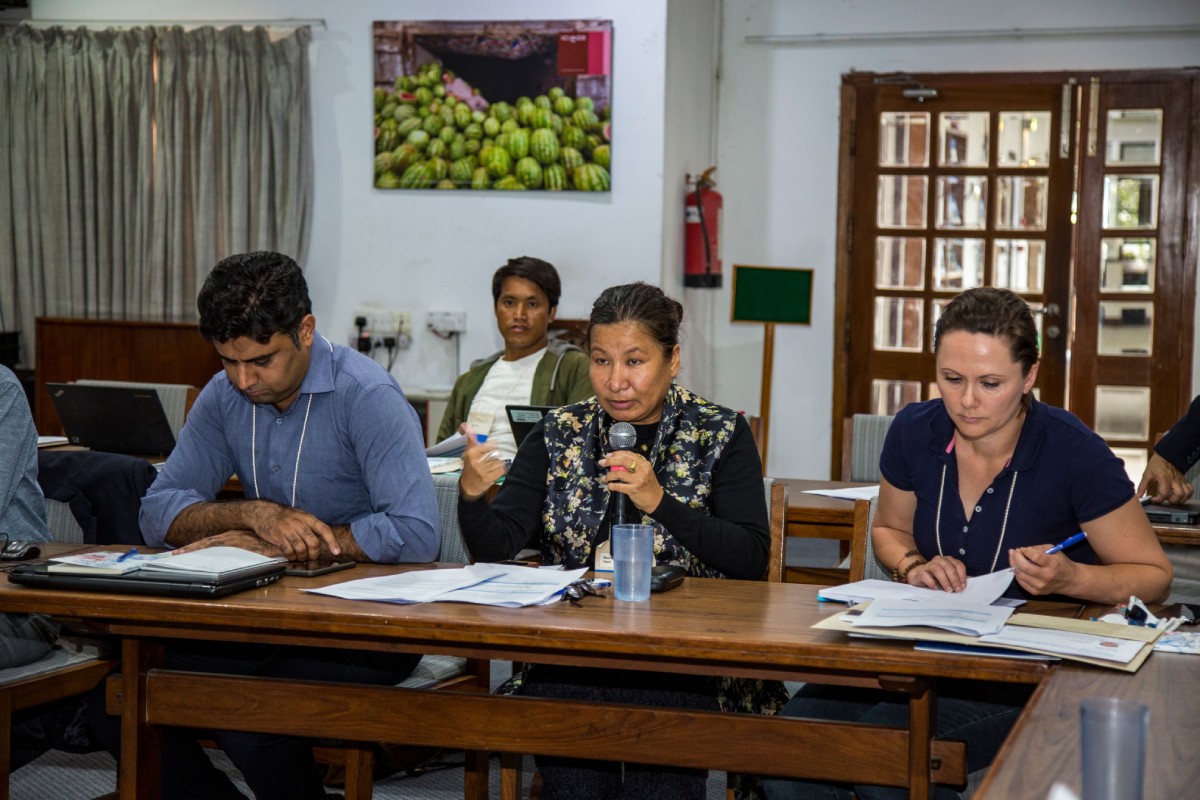Background
Tourism destinations within the Hindu Kush Himalayan (HKH) region are areas of great global geographical, natural, and cultural significance. With its towering peaks, majestic landscapes, and rich cultural heritage, the HKH region has long drawn fascinated visitors from around the world. Remoteness, inaccessibility, and limited alternative livelihood options are challenges dictating the socioeconomic wellbeing of mountain communities. The International Centre of Integrated Mountain Development (ICIMOD) aims to promote sustainable mountain tourism to enhance the socioeconomy and wellbeing of mountain communities. Its Kailash Sacred Landscape (KSL) Initiative promotes sustainable mountain tourism in the KSL (shared by China, India, and Nepal) to ensure benefits to communities and partnering countries at the transnational level.
Mountain tourism in the context of the KSL is interlaced with heritage, culture, and identity. The KSL is a globally important heritage encompassing Mount Kailash and Mansarovar, an epicentre of cultural and religious significance. The landscape as a global heritage also has great historical significance, particularly given the ancient cross-border cultural, economic, and religious interactions that have underpinned the transnational exchange of goods, services, and knowledge.
Today, heritage tourism is rapidly growing across the world. Tourism economy, heritage preservation, and national and transnational level collaboration are expanding concomitantly. An increasing number of travellers are traversing the KSL, seeking experiential journeys for pilgrimage, festivals, traditions, and authentic cuisines and lifestyles. With this boom, mountain tourism has become an inextricable part of the landscape’s economy and collaboration. Heritage tourism in the KSL therefore needs to be understood in the context of its broad connotations and values at a transnational scale.
About the inception meeting
Every year, thousands of pilgrims and hundreds of tourists follow specific heritage routes to Mount Kailash. On one hand, the thriving tourism brings economic prosperity to the KSL; on the other, it poses dangers to the landscape and its local communities. Well-developed heritage routes could be a possible solution. Such routes are designed to preserve tangible and intangible cultural heritage and also generate benefits to the local communities. They integrate important elements for sustainable mountain tourism and cultural heritage preservation, such as political (planning and management); economic (jobs, employment, and enterprises); environmental (waste, carrying capacity); and social (human capital – knowledge, awareness, skills, capacity) agendas. Effective cooperation and collaboration is needed among diverse stakeholders directly or indirectly impacted by heritage route development in the KSL.
A critical area for cooperation and collaboration is applied knowledge generation to support science and policy decisions. Collaboration is essential for inter- and transdisciplinary research that integrates border/frontier regions, tourism management, heritage preservation, and sustainability in the KSL. To this end, ICIMOD’s Himalayan University Consortium (HUC) and Kailash Sacred Landscape Conservation and Development Initiative (KSLCDI) are jointly organizing an inception meeting on the HUC Thematic Working Groups (TWGs) on Mountain Tourism and Cultural Heritage, which were proposed at the HUC Annual Meeting in Chengdu in 2017. The launch of the Mount Kailash Heritage Route Project will also take place during the meeting.
The HUC is a growing network of 80 universities in eight HKH countries – Afghanistan, Bangladesh, Bhutan, China, India, Nepal, Myanmar, and Pakistan – and selected countries in the Organisation for Economic Co-operation and Development. The Consortium aims to promote regional and global collaboration in research and higher education for meaningful and sustainable wellbeing of local communities. HUC’s TWGs are member-led, self-organizing clusters of scholars and institutions operating on resource-sharing basis.
A Sustainability Education Task Force has recently been established to promote inter- and trans-disciplinary, field-based, problem-based, and solution-driven approaches in research and education among members. The Consortium hopes to create a new generation of scholar-leaders in the HKH region, committed to inter- and trans- disciplinary research, and capable of producing consequential knowledge and innovative policies to address HKH mountain issues.
Purpose
The meeting aims to i) take stock of the existing availability of mountain-focused, HKH-specific research and higher education curricula in the field of cultural heritage and tourism studies among HUC full members in the region; and ii) explore the scope of a collaborative multidisciplinary research project on Mount Kailash as part of efforts to develop a transnational heritage tourism route in the KSL.
Objectives
- Obtain preliminary understanding of the state-of-the-art of research and higher education training in cultural heritage and tourism studies, with special reference to mountains, among HUC full members in the eight HKH countries
- Identify gaps in knowledge, methodology, and pedagogy for curriculum development in relevant fields
- Consolidate governance structure of the two TWGs, or one merged TWG as per decision by participants
- Discuss and initiate drafting a Strategy and Plan for Actions for both TWGs, or for one of the merged TWG as per decision by participants
- Explore the potential for collaboration among members on the Mount Kailash Heritage Route Project Proposal and develop a Roadmap for Collaborative Actions
Expected outputs
Finalization of a consolidated governance structure of the thematic working groups, with specified lead, co-Leads, focal persons, etc.
- Establishment of a strategy-drafting core group
- Preparation of a draft Roadmap for Collaborative Actions of the Mount Kailash Heritage Route Project Proposal
- Finalization of a consolidated governance structure of the thematic working groups, with specified lead, co-Leads, focal persons, etc.

